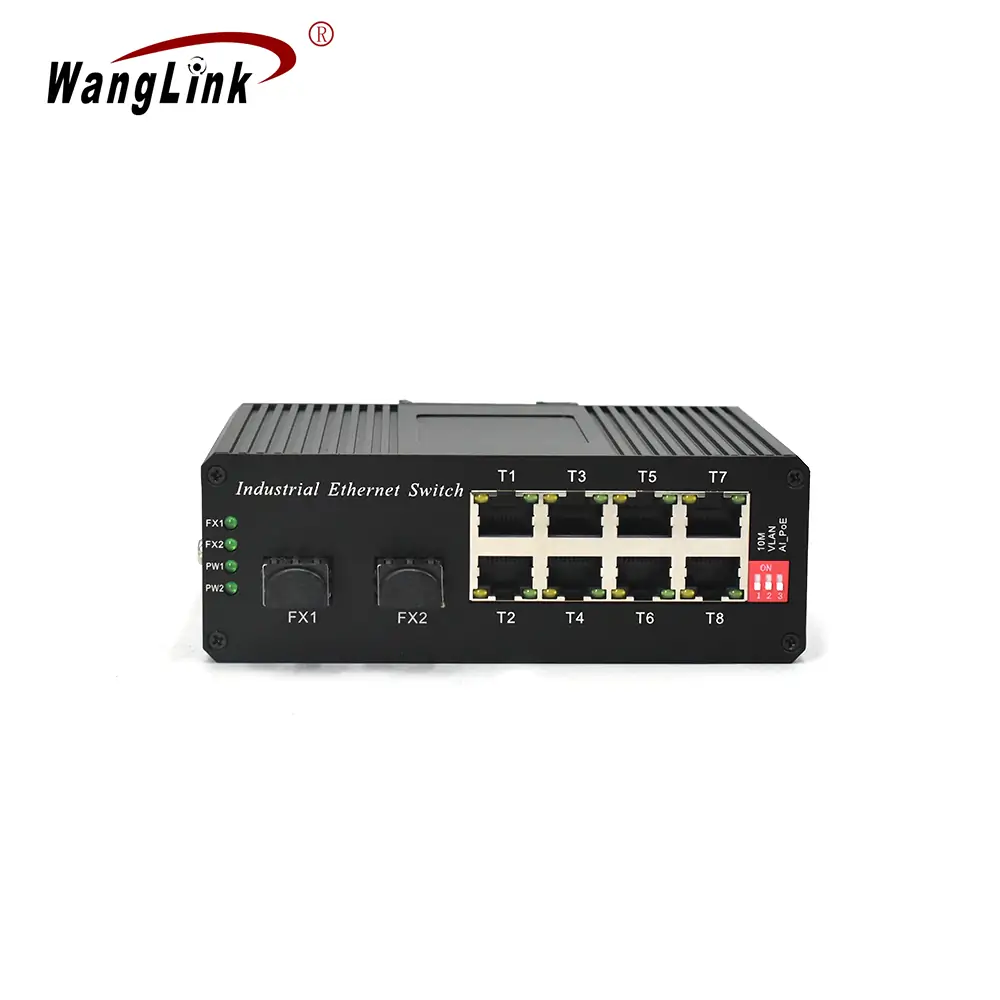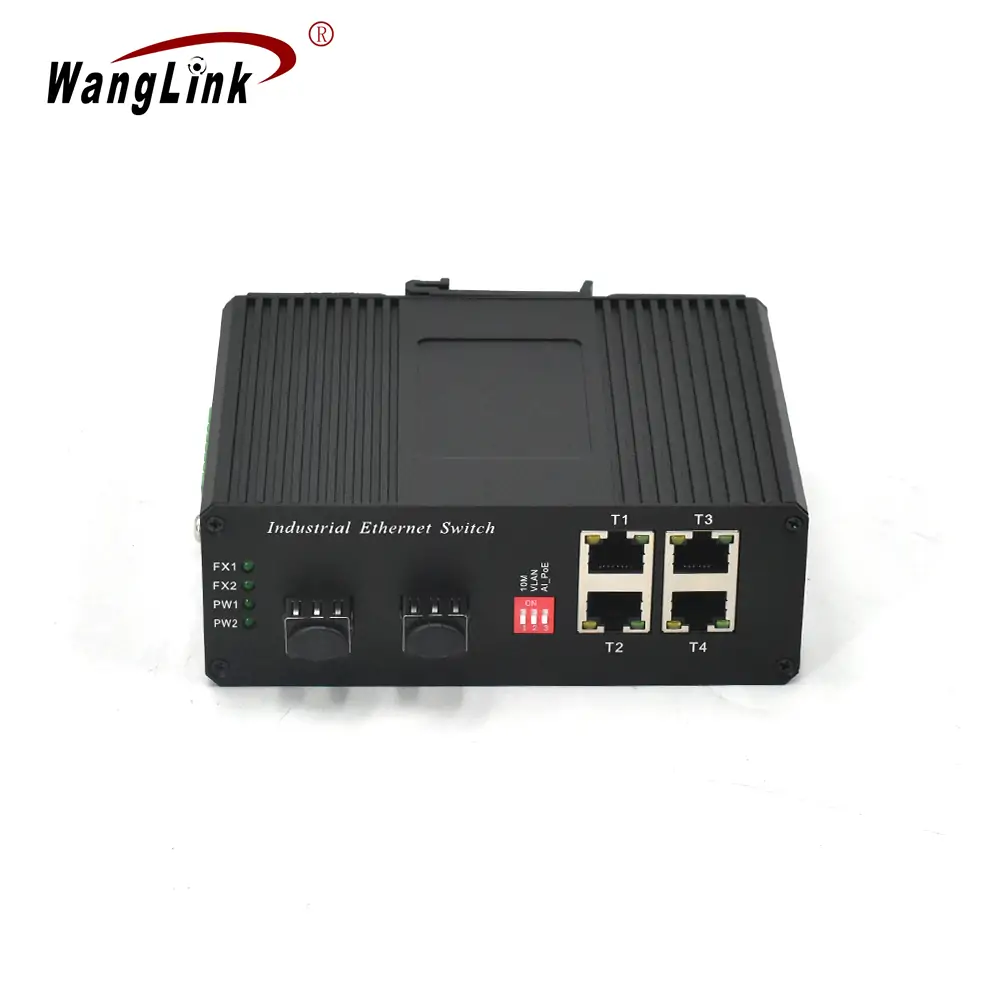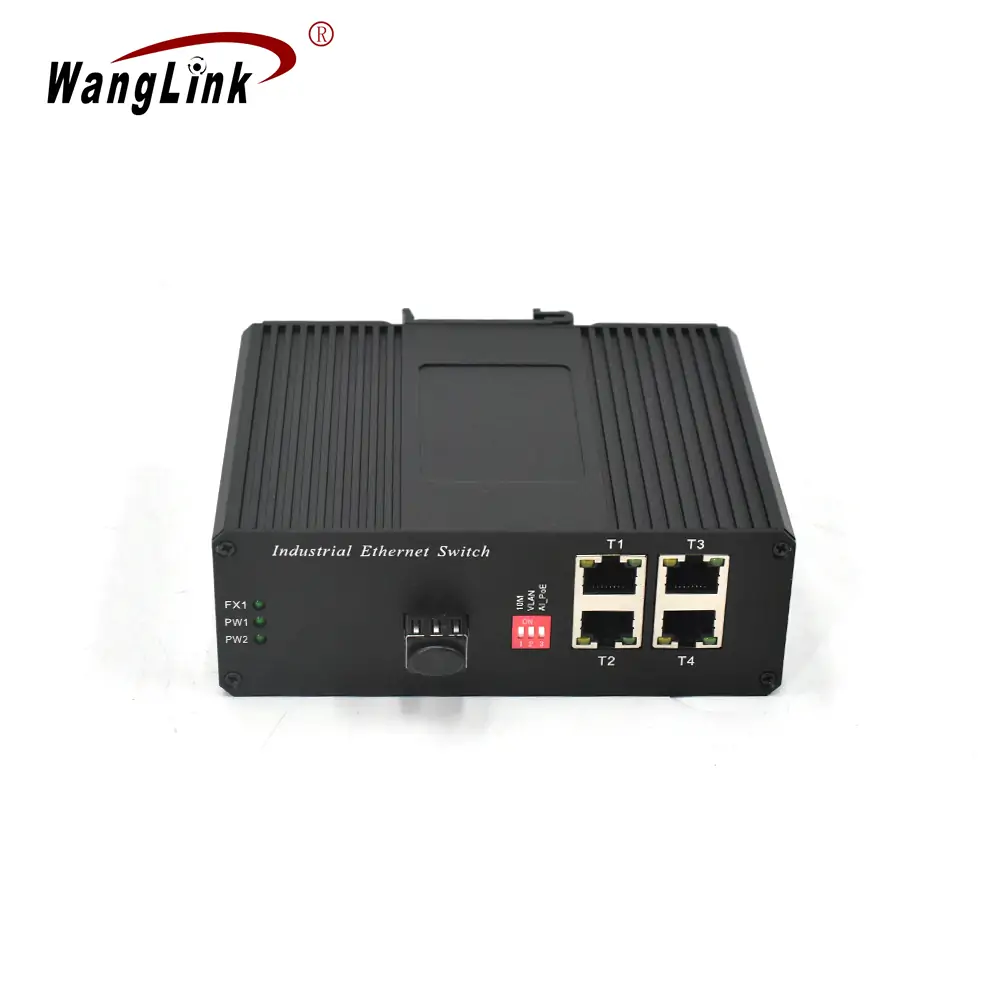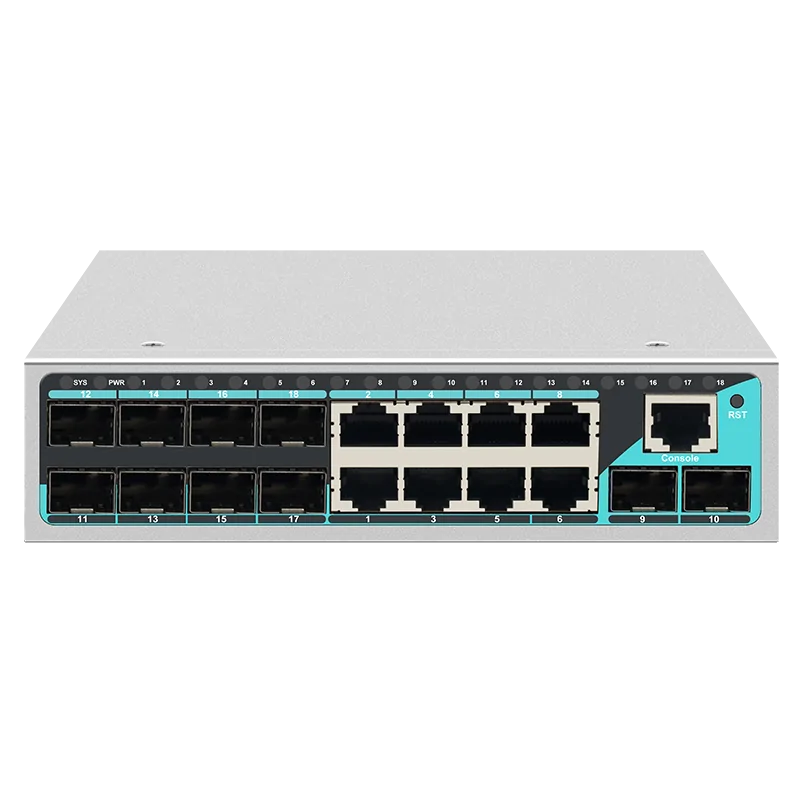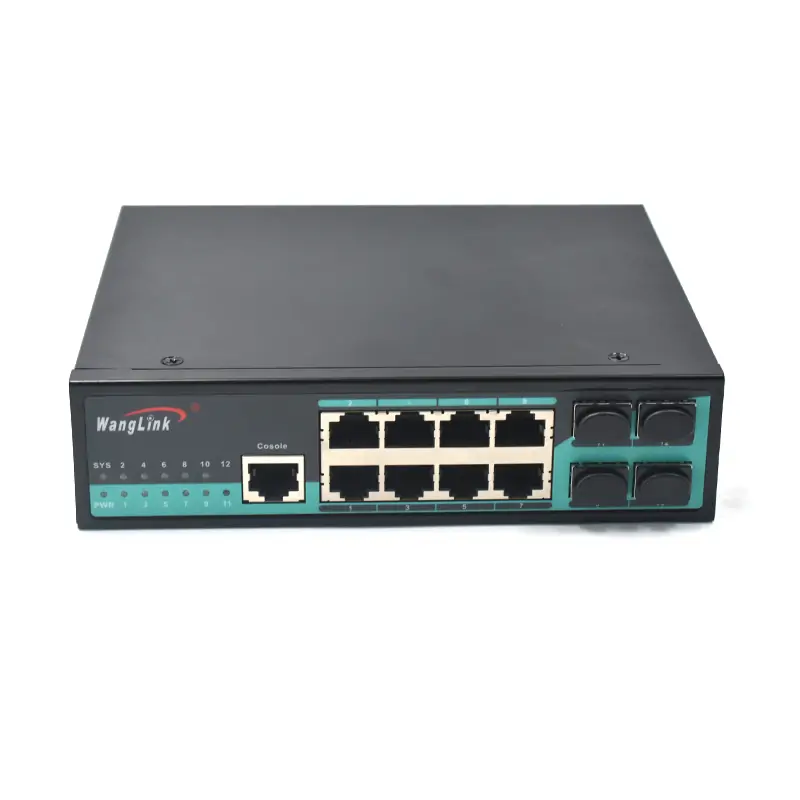VLAN Ethernet Switch: Complete Guide to Network Segmentation and Management Solutions
In today’s complex networking environments, VLAN Ethernet switches have become indispensable tools for network administrators seeking efficient traffic management and enhanced security. Virtual Local Area Networks (VLANs) enable network segmentation without requiring physical infrastructure changes, making them cost-effective solutions for businesses of all sizes.
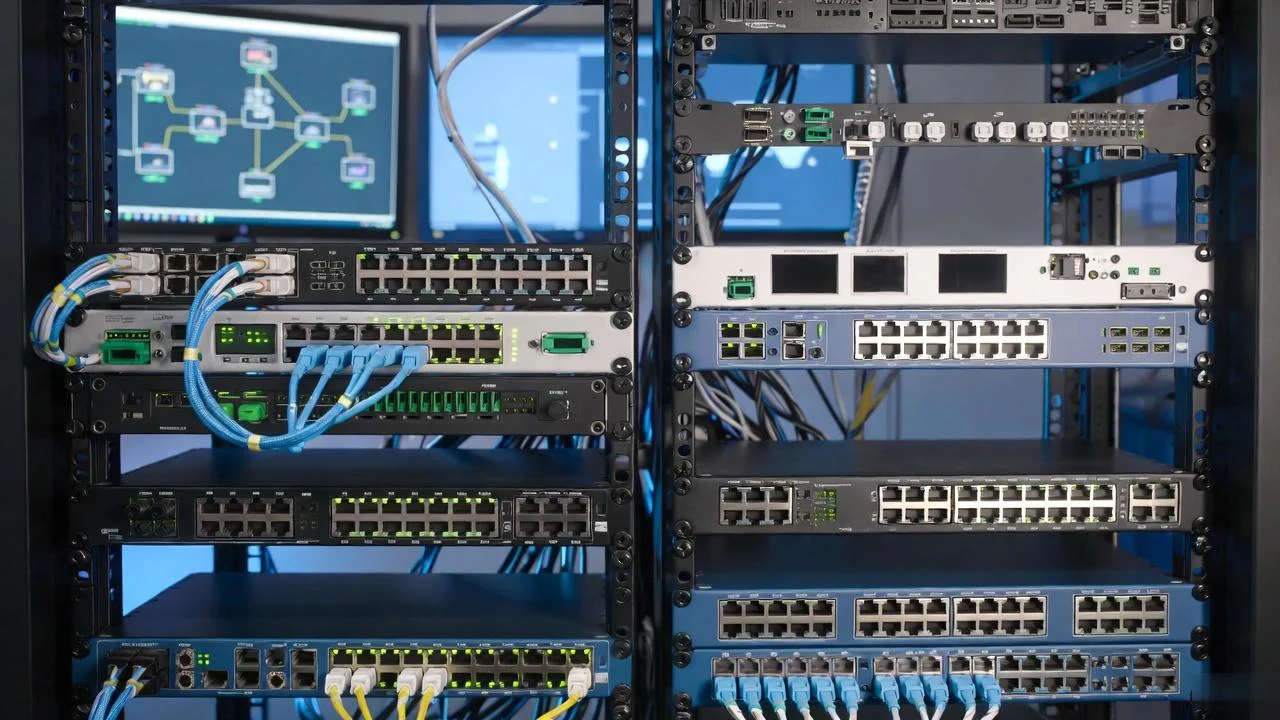
Understanding VLAN Technology in Ethernet Switches
What is a VLAN Ethernet Switch?
A VLAN Ethernet switch is a network device that supports Virtual Local Area Network functionality, allowing administrators to create logical network segments within a single physical switch infrastructure. Unlike traditional switches that operate solely on physical port boundaries, VLAN-enabled switches can group ports logically, regardless of their physical location.
Key Benefits of VLAN Implementation
Network Segmentation Advantages:
- Enhanced security through traffic isolation
- Improved network performance by reducing broadcast domains
- Simplified network management and troubleshooting
- Cost-effective scalability without additional hardware
- Flexible network design and reconfiguration capabilities
Traffic Management Features:
- Quality of Service (QoS) prioritization
- Bandwidth allocation per VLAN
- Broadcast storm prevention
- Multicast traffic optimization
Types of VLAN Ethernet Switches
Managed VLAN Switches
Managed switches offer comprehensive VLAN configuration options and advanced features:
| Feature | Description | Benefits |
|---|---|---|
| Port-based VLANs | Assign ports to specific VLANs | Simple configuration and management |
| 802.1Q Tagging | IEEE standard VLAN tagging | Interoperability across vendors |
| Dynamic VLANs | Automatic VLAN assignment | Reduced administrative overhead |
| Inter-VLAN Routing | Layer 3 routing between VLANs | Centralized traffic control |
| VLAN Trunking | Multiple VLANs over single link | Efficient bandwidth utilization |
Smart/Web-Managed VLAN Switches
These switches provide essential VLAN functionality with simplified management interfaces, perfect for small to medium businesses requiring basic network segmentation without complex configuration requirements.
Industrial VLAN Switches
Industrial-grade VLAN switches are designed for harsh environments and critical applications:
Key Specifications:
- Extended temperature range (-40°C to +75°C)
- DIN rail mounting options
- Redundant power supply support
- Enhanced electromagnetic compatibility (EMC)
- Vibration and shock resistance
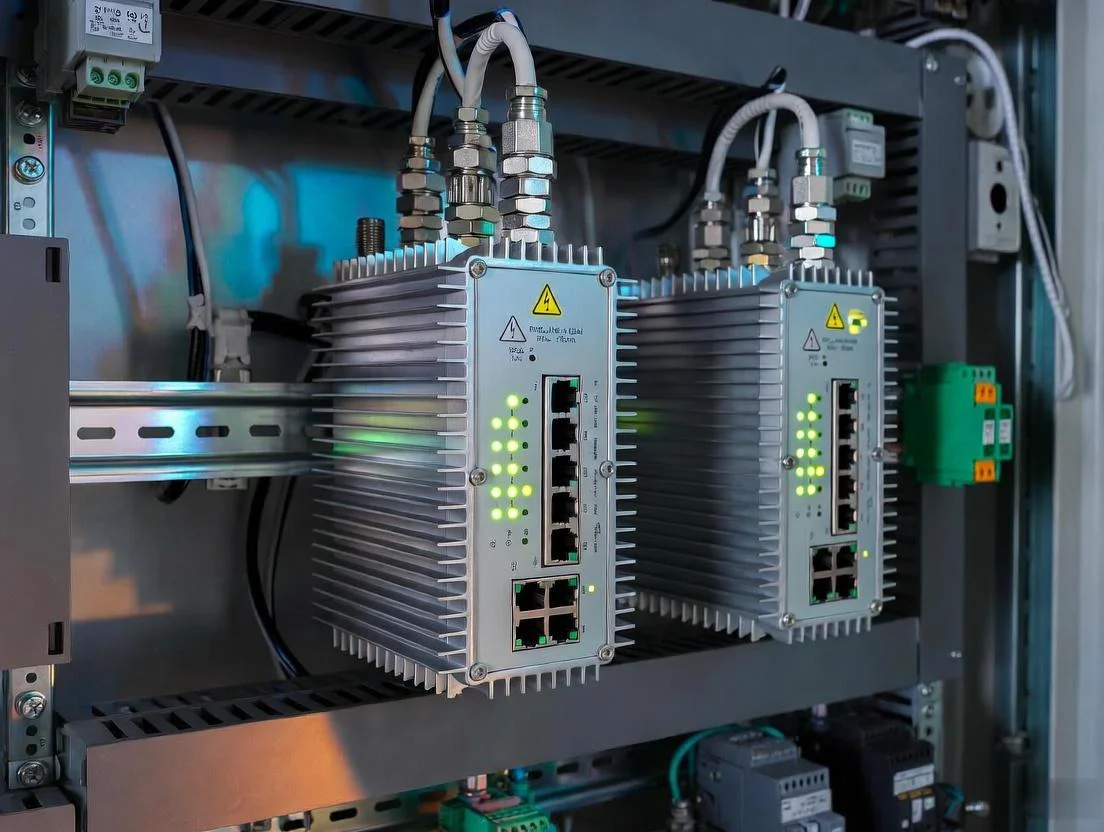
VLAN Configuration and Management
Basic VLAN Setup Process
Step-by-Step Configuration:
- Access Switch Management Interface
- Web-based GUI or CLI access
- Default credentials and IP configuration
- Security settings and user management
- Create VLAN Database
- Define VLAN IDs (1-4094 range)
- Assign descriptive VLAN names
- Configure VLAN parameters
- Port Assignment Methods
- Static port-to-VLAN mapping
- Dynamic VLAN assignment protocols
- Trunk port configuration for multiple VLANs
- Inter-VLAN Communication Setup
- Router-on-a-stick configuration
- Layer 3 switch routing
- Access control lists (ACLs) implementation
Advanced VLAN Features
VLAN Trunking Protocol (VTP):
- Centralized VLAN management
- Automatic VLAN propagation
- Reduced configuration errors
- Scalable network deployment
Private VLANs (PVLANs):
- Enhanced security within VLANs
- Isolated, community, and promiscuous ports
- Service provider applications
- Multi-tenant environments
Real-World VLAN Implementation Case Study
Enterprise Network Segmentation Project
Client Background:
TechCorp Manufacturing, a mid-sized industrial company with 500 employees, required network segmentation to improve security and performance across their facility.
Challenge:
- Mixed traffic causing network congestion
- Security concerns with guest access
- Difficulty managing IoT devices
- Compliance requirements for financial data
Solution Implementation:
VLAN Design Strategy:
- VLAN 10: Management and administration
- VLAN 20: Production floor systems
- VLAN 30: Office workstations
- VLAN 40: Guest network access
- VLAN 50: IoT and sensor devices
Equipment Selection:
Wanglink provided a comprehensive solution including:
- ISG1602M Gigabit Industrial 16 Port Managed Ethernet Switch for core infrastructure
- SG802M Gigabit Layer 2 Ethernet Switch for office areas
- ISL802P Industrial Fast Ethernet Din Rail Switch for production environments
Results Achieved:
- 40% reduction in network congestion
- Enhanced security compliance
- Simplified network troubleshooting
- Improved IoT device management
- Cost savings of $50,000 compared to physical segmentation
Selecting the Right VLAN Ethernet Switch
Performance Considerations
Switching Capacity Requirements:
- Port count and density needs
- Throughput and forwarding rates
- Buffer memory specifications
- Latency requirements for real-time applications
VLAN Scale and Complexity:
- Maximum supported VLANs
- VLAN membership flexibility
- Inter-VLAN routing capabilities
- Management and monitoring features
Wanglink VLAN Switch Solutions
Product Portfolio Highlights:
| Model Series | Port Configuration | Key Features | Applications |
|---|---|---|---|
| ISG Series | 8-24 Gigabit ports | Industrial-grade, Layer 2/3 | Manufacturing, utilities |
| SG Series | 8-48 ports | Cost-effective, web-managed | SMB, office networks |
| ISL Series | 4-8 PoE+ ports | DIN rail, extended temperature | Industrial automation |
Customization Capabilities:
Wanglink’s customization services include:
- Custom port configurations
- Specialized firmware development
- Branded enclosures and labeling
- Application-specific feature sets
- Compliance certifications

Advanced VLAN Applications and Use Cases
Network Security Enhancement
Micro-segmentation Strategies:
- Zero-trust network architecture
- Lateral movement prevention
- Compliance zone isolation
- Critical asset protection
Security Policy Implementation:
- Role-based access control
- Dynamic VLAN assignment based on user authentication
- Network access control (NAC) integration
- Threat containment and quarantine
IoT and Smart Building Integration
Device Classification and Management:
- Automatic device discovery and VLAN assignment
- Bandwidth allocation per device category
- Security policy enforcement
- Centralized monitoring and control
Smart Building Applications:
- HVAC system integration
- Security camera networks
- Access control systems
- Environmental monitoring sensors
Troubleshooting Common VLAN Issues
Configuration Problems
Common Issues and Solutions:
- VLAN Mismatch Errors
- Verify VLAN ID consistency
- Check trunk port configuration
- Validate native VLAN settings
- Inter-VLAN Communication Failures
- Confirm routing configuration
- Check ACL restrictions
- Verify default gateway settings
- Performance Degradation
- Monitor broadcast traffic levels
- Analyze VLAN utilization patterns
- Optimize trunk link bandwidth
Monitoring and Maintenance
Best Practices:
- Regular VLAN database backups
- Performance baseline establishment
- Proactive monitoring implementation
- Documentation maintenance
Future Trends in VLAN Technology
Software-Defined Networking (SDN) Integration
Emerging Technologies:
- Centralized VLAN management through SDN controllers
- Dynamic VLAN provisioning based on application requirements
- Intent-based networking (IBN) for automated VLAN configuration
- Cloud-managed VLAN services
Network Function Virtualization (NFV)
Virtual VLAN Services:
- Virtualized switch functions
- Container-based network segmentation
- Hybrid cloud VLAN extension
- Edge computing integration
Why Choose Wanglink for VLAN Ethernet Switches
Manufacturing Excellence
With over 13 years of experience, Wanglink has established itself as a leading ethernet switch manufacturer specializing in VLAN-enabled networking solutions. Our comprehensive product line includes everything from basic unmanaged switches to advanced Layer 3 managed switches with full VLAN support.
Quality Assurance:
- ISO 9001:2015 certified manufacturing
- Rigorous testing protocols
- Extended warranty coverage
- Global compliance certifications
Inventory and Logistics:
- $30 million inventory investment
- Same-day shipping capabilities
- Global distribution network
- Flexible payment terms
For specialized applications, our reverse PoE switch solutions offer unique VLAN capabilities for power-over-Ethernet applications.
Frequently Asked Questions (FAQ)
Q: What is the maximum number of VLANs supported by Wanglink switches?
A: Our managed switches typically support up to 4094 VLANs (IEEE 802.1Q standard), with specific models offering different VLAN table sizes based on application requirements.
Q: Can I configure VLANs on unmanaged switches?
A: Standard unmanaged switches don’t support VLAN configuration. However, some of our smart switches like the SG08RP-2S offer DIP switch VLAN configuration for simplified setup.
Q: How do I ensure VLAN compatibility between different switch brands?
A: Use IEEE 802.1Q standard tagging for interoperability. Wanglink switches fully comply with industry standards, ensuring seamless integration with existing network infrastructure.
Q: What’s the difference between port-based and tag-based VLANs?
A: Port-based VLANs assign entire switch ports to specific VLANs, while tag-based VLANs use 802.1Q tags to identify VLAN membership, allowing multiple VLANs on a single port (trunk).
Q: Can VLANs improve network security?
A: Yes, VLANs provide network segmentation that isolates traffic between different user groups or applications, reducing the attack surface and containing potential security breaches.
Q: Do industrial VLAN switches require special configuration?
A: Industrial switches like our ISG804M series use the same VLAN standards but offer enhanced environmental protection and reliability features for harsh conditions.
Q: How can I monitor VLAN performance?
A: Managed switches provide SNMP monitoring, web-based statistics, and CLI commands to track VLAN utilization, error rates, and traffic patterns.
Q: What support does Wanglink provide for VLAN configuration?
A: We offer comprehensive technical support including configuration guides, remote assistance, and custom firmware development for specific VLAN requirements.
For more information about our VLAN Ethernet switch solutions or to discuss your specific networking requirements, contact our technical team at [email protected] or WhatsApp: +8613544167258. Visit our products page to explore our complete range of VLAN-enabled networking equipment.

